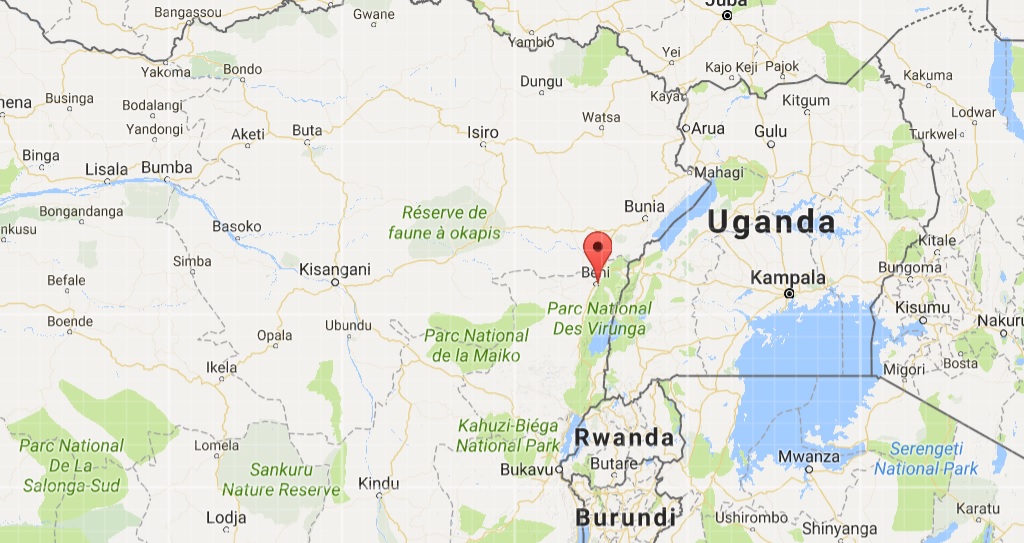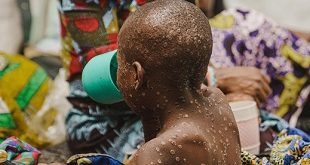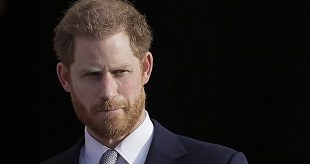
Beni, DR Congo | AFP |
Six suspected members of a Ugandan rebel group went before a Congolese military court on Saturday accused of taking part in the killing last weekend of 51 people, the latest in a string of massacres in the restive east of the country.
The gruesome slaying in the town of Beni touched off mass street protests against the government of the Democratic Republic of Congo for failing to protect the population from the armed rebel groups that plague the region. Clashes erupted at Wednesday’s protest march leaving three people including a policeman dead.
The men accused in the slaughter are “one Ugandan, one Tanzanian and four Congolese,” said colonel Jean-Paulin Esosa, who presides over the operational military court of North Kivu province.
Appearing at the public hearing in blue and yellow prison shirts, they were charged with “participation in an insurrectional movement, crimes against humanity for murder and terrorism,” Esosa said.
The accused admitted at the hearing to having been “at the service of the Allied Democratic Forces (ADF)”, a partly Islamist armed group of Ugandan origin, an AFP correspondent reported.
Hundreds of Beni residents had gathered to attend the hearing. One survivor of the brutal attack, Eve Kahambu, told AFP she wanted to see the “murderers” receive “the severest punishment”.
But the head of the Beni civil society, Gilbert Kambale, said: “We’re sceptical… it’s not the masterminds (of the attacks) who are before the court.”
The ADF has been present in DR Congo for more than two decades and is accused of a litany of human rights abuses and being involved with criminal networks funded by kidnappings, smuggling and logging.
The mass killing last weekend was only the latest of the attacks in the region around Beni that have claimed more than 700 lives since 2014.
The government has blamed them on the ADF, but a report published in March by the Congo Research Group at New York University, which probed these massacres, claimed that soldiers from the regular army had also participated in the killings.
In the attack last Saturday night “at least 50 civilians” were hacked to death, according to the UN mission to DRC (MONUSCO). Local civil society groups put the death toll at 51.
The violence added to the existing tension in the DRC, where fears are mounting that President Joseph Kabila plans to hold on to power after his second mandate expires in December.
In Beni on Wednesday, an effigy of Kabila was burned in the town’s main market, as were flags of his ruling People’s Party for Reconstruction and Democracy (PPRD).
The deadly protests came a day after Prime Minister Augustin Matata was booed by hundreds outside Beni’s town hall, after he visited the massacre site.
“What did he come for? We don’t need humanitarian aid, but peace,” said Germain Katembo, a survivor of the massacre who lost three members of his family.
 The Independent Uganda: You get the Truth we Pay the Price
The Independent Uganda: You get the Truth we Pay the Price



